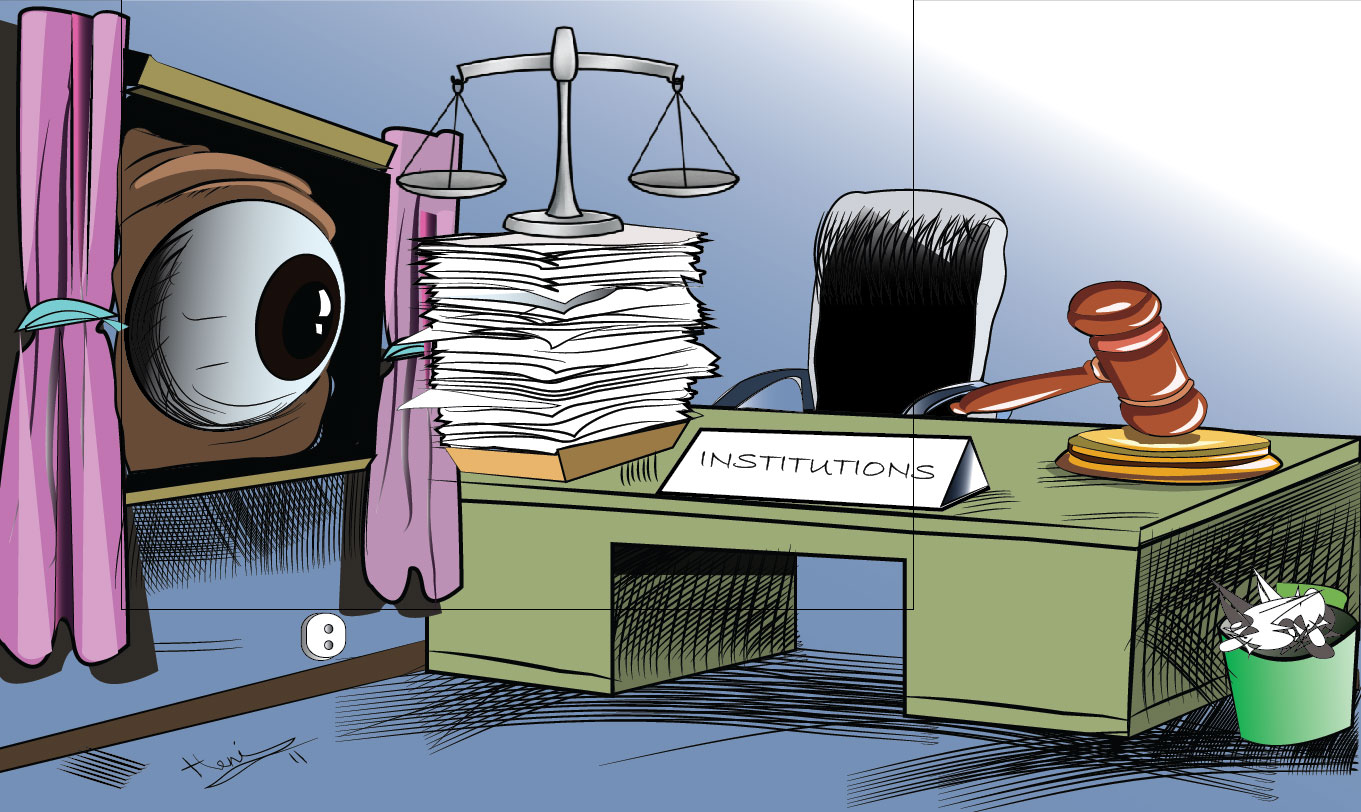
Commentaries | Jun 01,2024
Recently, I met an old colleague I had not seen for ages. Instantly, we went back to the irksome journey we had working in a government enterprise as young “professionals.”
In those old days, while we were working together, our institution had a computer section, yet it never progressed far from processing payroll. Our plea to extend it to cover other areas never materialised. But there were two employees at the institution who might have as well been computers. An old woman, Etye Debre, was tasked with all the day-to-day clerical works related to documentation and files. She maintained records and correspondences in accordance with her own established filing procedures to ensure security and easy access.
She was always present on duty in the position she held for ages, she had a graphic memory and attention to detail. Important age-old policies and ensuing amendments and purchase contracts, to name a few, were always at her fingertips. Simple records for the movement of files were just formalities, as she never forgets.
The other was an older man, called Ato Abrham. His highest level of educational attainment was high school. He was well versed with the enterprise’s charts of accounts and cost centres, had an incredible skill in accounting transactions coding, making entries, monthly and annual accounts closing and data entry. I remember we used to think any attempt to replace these two indefatigable, yet soon to be retired, service-minded and meritorious employees would be difficult.
We used to say that any computerisation effort in their respective sections needed to prove that the services of the two could possibly be optimised. They were not just good at tasks but approachable to others, helpful in a timely and responsive manner, and strove to satisfy their external and internal customers courteously.
Those days our fears and worries were whether any computerisation system was worth the kind of people we already had carrying out important tasks.
It was seeing that my colleagues and I felt the necessity of involving ourselves with the collection, analysis, interpretation, and reporting of data to our respective departmental endeavours first and having our personal development second in mind. We tried to capture past performances to be used as a useful signal for future management guidance. Those days, processing data with calculators and capturing synthesised data on typewritten papers was never handy for an update. It was quite a nightmare, and correction fluid was always close by at our desks.
It was soon that we debunked the false or exaggerated claims we attached to our positions. The time and the number of people it involved to produce just a list of employees with the help of a typewriter with carbon copies and the time it takes to prepare meeting minutes were ridiculous.
It was later that we witnessed what a computer could offer. Luckily, it was only because our institution had a big infrastructure design project, and the project staff helped us simplify our routines. It was then we got time for respite, have discussions among colleagues and read books.
The computer in our office got us interested in artificial intelligence. We read and discussed Ray Kurzweil’s books, who is one of the world's leading inventors, thinkers, and futurists, with decades of track record of accurate predictions. "The restless genius", "the ultimate thinking machine", the "rightful heir to Thomas Edison" and "one among the sixteen revolutionaries who made America," are some of the accolades accorded to him by the media.
Above all, while we read his books, we increased our intimacy with computers without which we cannot think of ourselves now and our future. He authored books like Fantastic Voyage: Live Long Enough to Live Forever (co-authored with Terry Grossman), The Age of Spiritual Machines, The 10pc Solution for A Healthy Life, and The Age of Intelligent Machines. Our favourite was The Singularity Is Near.
As Kurzweil did for his people, now, it is our turn to fit our people to the rapid technological change and advances in computer systems. Still, we will need the likes of Etye Debre and Ato Abrham to lead the way.
PUBLISHED ON
Nov 13,2021 [ VOL
22 , NO
1124]


Commentaries | Jun 01,2024

Editorial | Aug 19,2023

Viewpoints | Aug 05,2023

Viewpoints | Oct 09,2021

Editorial | Nov 27,2018

Radar | Apr 09,2022

View From Arada | Feb 20,2021

Radar | Aug 03,2025

Radar | Aug 30,2025

Radar | Dec 01,2024

Dec 22 , 2024 . By TIZITA SHEWAFERAW
Charged with transforming colossal state-owned enterprises into modern and competitiv...

Aug 18 , 2024 . By AKSAH ITALO
Although predictable Yonas Zerihun's job in the ride-hailing service is not immune to...

Jul 28 , 2024 . By TIZITA SHEWAFERAW
Unhabitual, perhaps too many, Samuel Gebreyohannes, 38, used to occasionally enjoy a couple of beers at breakfast. However, he recently swit...

Jul 13 , 2024 . By AKSAH ITALO
Investors who rely on tractors, trucks, and field vehicles for commuting, transporting commodities, and f...

Oct 25 , 2025
The regulatory machinery is on overdrive. In only two years, no fewer than 35 new pro...

Oct 18 , 2025
The political establishment, notably the ruling party and its top brass, has become p...

Oct 11 , 2025
Ladislas Farago, a roving Associated Press (AP) correspondent, arrived in Ethiopia in...

Oct 4 , 2025
Eyob Tekalegn (PhD) had been in the Governor's chair for only weeks when, on Septembe...